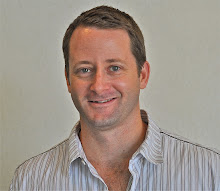Podcasting: Legal Pirate Radio?
Intrigued by the possibilities of podcasting, I just downloaded Adam Curry’s iPodder software, which is available for download here. Presently, I don’t have the free time to put together my own podcast, but I’m looking forward to experimenting with it.
My more immediate interest with podcasting has to do with the medium’s ability to reach early adopters and its potential to influence sales of music and other media. This week, a couple of interesting tidbits about podcasting came to light.
The first was a report by the Pew Internet & American Life project, which revealed that more than 6 million Americans have listened to a podcast, including 29% of all owners of mp3 players. Among the findings:
- There are no differences between men and women owners of iPods/MP3 players when it comes to podcasting. They are equally likely to have downloaded podcasts.
- Nearly half of those who own iPods/MP3 players between the ages of 18-28 have downloaded podcasts, compared to about 20% of the owners iPods/MP3 players over age 29 who have done so.
- Somewhat surprisingly, there is no notable gap between those who have broadband access and dial-up users when it comes to podcasting. Some 33% of the owners of iPods/MP3 players who have broadband at home have downloaded podcasts and 28% of those who have dial-up at home have done so. This is not a statistically significant difference.
The second interesting tidbit showed up or, rather, didn’t show up, in release 5.0 of the American Society of Authors, Composers and Publisher’s (ASCAP) experimental license agreement for Internet sites and services. This agreement is for non-interactive services, such as webcasts. In an earlier version, podcasting was mentioned as a use that would require licensing. I find it very encouraging that in the latest version, there is no mention of podcasting.
At this stage, I’m not sure what kind of licensing fees ASCAP or BMI would have wrung out of podcasters, since podcasting currently is largely the domain of people interested in music on independent labels or produced by unsigned acts. I suspect very few of these acts have agreements with the major publishers and that most are likely happy to have their music podcasted as broadly as possible with as little friction as possible. By promoting and distributing music for free, podcasters are doing artists and labels quite a favor. And, judging purely from anecdotal evidence, podcasters as a group seem to be pretty conscientious about securing permission from artists and labels
I’ve always found the effort by publishers to license digitally distributed music somewhat perplexing. A download is an act of distribution, as opposed to a performance, which is what publishers collect fees for. As David Touve noted in a recent posting to the Pho List, “Do we need a performance license to drive a truck filled with CDs from
Anyway, on to the larger point, which is the emergence of podcasters as a promotional force. If these guys remain unburdened by publisher license obligations, then they can podcast music they truly admire, as opposed to music they can afford to podcast.
The music industry would do well to embrace podcasting, given the medium’s expanding reach and its ability to facilitate discovery by consumers. I hope that ASCAP’s latest licensing document is a sign that the industry has learned something from the ugly p2p wars and will resist the urge to put its foot on the throat of what is quickly becoming be a powerful web-based community.
Labels: business, technology









0 Comments:
Post a Comment
<< Home